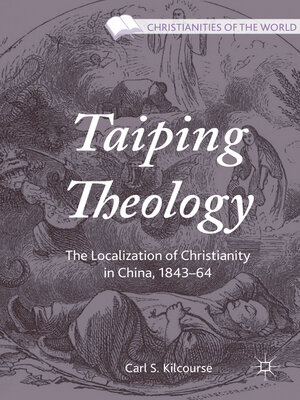Taiping Theology
ebook ∣ The Localization of Christianity in China, 1843–64 · Christianities of the World
By Carl S. Kilcourse

Sign up to save your library
With an OverDrive account, you can save your favorite libraries for at-a-glance information about availability. Find out more about OverDrive accounts.
Find this title in Libby, the library reading app by OverDrive.



Search for a digital library with this title
Title found at these libraries:
| Library Name | Distance |
|---|---|
| Loading... |
This book examines the theological worldview of the Taiping Rebellion (1850–64), a Chinese revolutionary movement whose leader, Hong Xiuquan (1814–64), claimed to be the second son of God and younger brother of Jesus. Despite the profound impact of Christian books on Hong's religious thinking, previous scholarship has neglected the localized form of Christianity that he and his closest followers created. Filling that gap in the existing literature, this book analyzes the localization of Christianity in the theology, ethics, and ritual practices of the Taipings. Carl S. Kilcourse not only reveals how Confucianism and popular religion acted as instruments of localization, but also suggests that several key aspects of the Taipings' localized religion were inspired by terms and themes from translated Christian texts. Emphasizing this link between vernacularization and localization, Kilcourse demonstrates both the religious identity of the Taipings and their wider significance in the history of world Christianity.







